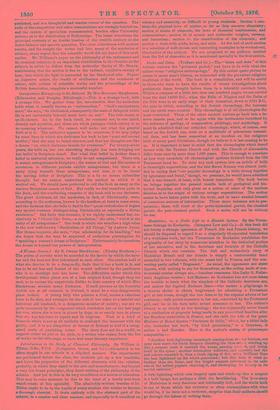I ntroduction to the Study of Chemical Philosophy. By William A.
Tilden, D.Sc., F.C.S. (Longmans, Green, and Co.)—Chemistry is too often taught in our schools in a slipshod manner. The experiments are performed before the class, the students get up a few reactions, and learn the properties of the different elements, with the relation, probably, in which they stand to the arts and manufactures; but beyond a very few broad principles, they know nothing of the philosophy of the science. And yet in this is its very excellence as a means of education. This may in some measure be due to the want of a handy text-book which treats of this specially. The admirably-written treatise of Dr. Tilden ought to be in the bands of every student who wishes to become s thorough chemist. It deals entirely with the abstract part of the subject, in a concise and clear manner, and especially is it excellent on
valency and atomicity, so difficult to young students. Section i. con- tains the physical laws of matter, so far as they concern chemistry ; section ii. treats of elements, the laws of chemical combination, and nomenclature ; section iii. of atomic and molecular weights, valenoy, and isomerism; section iv. the classification of the elements ; and section v. deals with acids, bases, and salts. At the end of each section is a selection of well-chosen and interesting examples to be worked-out, illustrative of the subject. We are surprised to see gallium omitted from the list of elements, as it is mentioned specially in the first section.


































 Previous page
Previous page